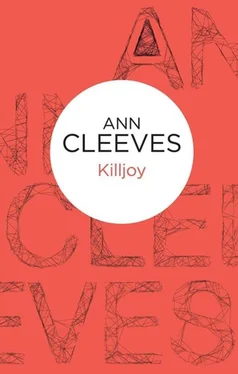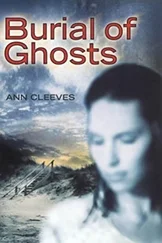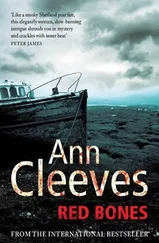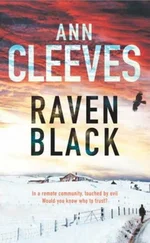Ann Cleeves - Killjoy
Здесь есть возможность читать онлайн «Ann Cleeves - Killjoy» весь текст электронной книги совершенно бесплатно (целиком полную версию без сокращений). В некоторых случаях можно слушать аудио, скачать через торрент в формате fb2 и присутствует краткое содержание. Жанр: Детектив, на английском языке. Описание произведения, (предисловие) а так же отзывы посетителей доступны на портале библиотеки ЛибКат.
- Название:Killjoy
- Автор:
- Жанр:
- Год:неизвестен
- ISBN:нет данных
- Рейтинг книги:5 / 5. Голосов: 1
-
Избранное:Добавить в избранное
- Отзывы:
-
Ваша оценка:
- 100
- 1
- 2
- 3
- 4
- 5
Killjoy: краткое содержание, описание и аннотация
Предлагаем к чтению аннотацию, описание, краткое содержание или предисловие (зависит от того, что написал сам автор книги «Killjoy»). Если вы не нашли необходимую информацию о книге — напишите в комментариях, мы постараемся отыскать её.
Killjoy — читать онлайн бесплатно полную книгу (весь текст) целиком
Ниже представлен текст книги, разбитый по страницам. Система сохранения места последней прочитанной страницы, позволяет с удобством читать онлайн бесплатно книгу «Killjoy», без необходимости каждый раз заново искать на чём Вы остановились. Поставьте закладку, и сможете в любой момент перейти на страницу, на которой закончили чтение.
Интервал:
Закладка:

Ann Cleeves
Killjoy
The fourth book in the Inspector Ramsay series, 1993
Chapter One
At seven o’clock on November 30th the Grace Darling Arts Centre was busy. The fog seeped inland from the Tyne and hung around the horse chestnut trees in Hallowgate Square but the building had a light in every window and the car park behind the house was full. Hallowgate had once been a prosperous Victorian suburb. The wealthy middle classes from Newcastle who made their money from ships or coal built houses there. Then the conurbation spread and Hallowgate became part of the North Tyneside sprawl. Its fortunes declined. It had never been as smart as Tynemouth or Martin’s Dene to the east and was too far from the metro line and the main road to be taken up by serious commuters. From attic windows in the solid red-brick houses there were views of the cranes along the river, a rope factory, the remaining skeleton of a boatyard. Hallowgate was close to the Tyne but this part had an identity of its own: quiet, shabby, forgotten.
The rest of the square was quiet. Most of the residents were elderly. Recent news reports of skirmishes with the police on the Starling Farm, a nearby council estate, kept them inside. The talk in the pubs was of joy riding, ram raiders. The streets seemed dangerous. On the corner of Anchor Street the Bengali grocer’s shop was still open but the languid teenage girls behind the counter had no customers to serve and spent the evening reading magazines and sucking sweets. By then the fog was so thick that even with the street lights they could not see the visitors to the Arts Centre in any detail. Even if the visibility had been perfect they were unlikely to take any notice.
Evan Powell drove into the Grace Darling car park, saw that it was full, and drove out again to find a space in the square. It would not have occurred to him to cause inconvenience by double parking. The manoeuvre took longer than he had anticipated and it was just after seven when he opened the door to the small music room where the other members of the choral society were arranging chairs and music stands. Punctuality was important to him and he had been faintly anxious that they might have started. It came as a relief to see that three other people came in after him. Before the conductor called them to order he wondered briefly if his son John had remembered that he would be here tonight to give him a lift home. It was a bad time for youngsters to be out on the streets alone.
In the main hall the Tyneside Youth Theatre had just begun its rehearsal. The teenagers were limbering up to loud rock music. The windows were covered by blackout curtains and the room was dimly lit by coloured spots. They moved barefoot across the wooden floor, jumping and twisting, dressed in cycle shorts or Lycra leggings and loose, sexless T-shirts. Prue Bennett, sitting on the stage and watching them, admired their youth and energy, with a trace of envy. She switched off the large cassette-recorder.
‘OK everyone,’ she said. ‘Relax.’
Then she turned to the theatre’s director, who was too grand, it seemed, to take the exercises but who came in now once the real work of the evening was to begin.
Gus Lynch was a local man. His dad had been a draughtsman at the Swan Hunter boatyard and he had been to school in Wallsend. The trustees of the Grace Darling thought it was local pride that had brought him back to run the Centre and direct the Youth Theatre but he was too canny for that. Soon after drama school he had starred as a token Geordie in an ITV sitcom. The series had run for years to a dwindling audience and when it came to an end Gus was virtually unemployable. He had no experience of the serious stage and in its final years the series had been something of a joke; advertisers and the producers of the new, slick comedy programmes were not interested in anyone associated with it. Gus was an ambitious man and although he had played hard to get he had welcomed the approaches from the Centre’s trustees. He recognized the potential the post had for reviving his image. It made him the North-East’s most prominent media man. He was invited on to late-night television shows to discuss provincial theatre. The money was crap, he had to admit, but in the scheme of things the Grace Darling Centre was performing a useful function. The situation comedy had almost been forgotten and he was already looking forward to something new.
He cultivated the part of the famous actor. Despite middle age he wore a lot of denim and he swore at them all. The teenagers thought he was wonderful. They gathered together to listen as he joined Prue on the stage.
‘Let’s do some work on the last scene,’ he said, ‘when Sam Smollett rescues Abigail from the crowd around the gallows, don’t forget I want real menace, not just a lot of shouting and abuse.’
He was very thin and his head was the shape of a skull, Prue saw now, prompted by talk of the gallows.
The group had devised the play- The Adventures of Abigail Keene -from stories they had grown up with since childhood, and from a folk song performed still in clubs and pubs all over the region. Abigail Keene had been an eighteenth-century rebel, the daughter of a Hallowgate merchant who had run away from home to travel and see the world. She had taken up with a robber and highwayman, then been caught and sentenced to hang, rescued only at the last moment by her lover. There was no real evidence of her existence but her story had survived in the area through song and myth. The group had turned it into a roistering melodrama, full of black humour and sexual innuendo, interspersed by music. Prue Bennett described it to her friends as Richardson’s Clarissa crossed with Monty Python.
Gus looked down at the expectant teenagers and felt the sudden exhilaration of power. This might be a small pond, he thought, but he was a bloody big fish in it.
‘OK,’ he said. He moved restlessly over the stage. ‘Let’s set it up. John and Gabby to their positions, the crowd over here. We’ll try it without the music first. Don’t forget we’ve our first dress rehearsal next week.’
The young people were using the stage and the front of the auditorium below it. They had placed blocks to separate the space and give a variation in height. They milled around to find their starting positions.
‘Right!’ Gus said. ‘Now, can we have more light?’
The hall was suddenly lit by a series of white spotlights. In one, on the stage stood a dark, muscular boy in a track suit. He held one hand to his face to shield the glare from the light.
‘Gabby’s not here,’ the boy said flatly. ‘I haven’t seen her all evening.’
‘Bloody hell!’ Gus Lynch said. ‘We can’t do much without her. Prue, where the hell is Gabby? She lives with you, doesn’t she? What have you done with her?’
‘I haven’t done anything with her,’ Prue said calmly. ‘I’m her landlady not her minder.’
‘Well, we can’t wait any longer for her. Anna, you can play her part for tonight. Let’s get on with it.’
Prue Bennett watched her daughter move from the shadow, sensing her nervousness. In the circle of light John Powell stood, moving his feet and shaking his hands as if he were some athlete warming up before a big race. She wondered if Gus Lynch had hoped to cause her some awkwardness by choosing Anna as Gabby’s understudy for Abigail Keene. He knew that the girl worked well as part of a group but became shy and diffident when she was the centre of attention. Was this an attempt to give her confidence, or just an opportunity for him to exert his authority over Prue?
Читать дальшеИнтервал:
Закладка:
Похожие книги на «Killjoy»
Представляем Вашему вниманию похожие книги на «Killjoy» списком для выбора. Мы отобрали схожую по названию и смыслу литературу в надежде предоставить читателям больше вариантов отыскать новые, интересные, ещё непрочитанные произведения.
Обсуждение, отзывы о книге «Killjoy» и просто собственные мнения читателей. Оставьте ваши комментарии, напишите, что Вы думаете о произведении, его смысле или главных героях. Укажите что конкретно понравилось, а что нет, и почему Вы так считаете.












